Speaker: Ma Jingjing

• Co-founder of NORDIQ Group Denmark and CEO of NORDIQ Group China.
• She developed the first Clean Development Mechanism Chinese based project methodology approved under UNFCCC from 2004-2006 as AM0058.
• Senior sustainability urban planner, certified urban and green building consultant, Germany DGNB certificated consultant and PHI consultant.
• +80 renewable energy projects in China, Thailand and Egypt.
• She holds both MBA from Peking University in 2010 and obtains her MSc of Environmental Engineering from the Technical University of Denmark in 2005.
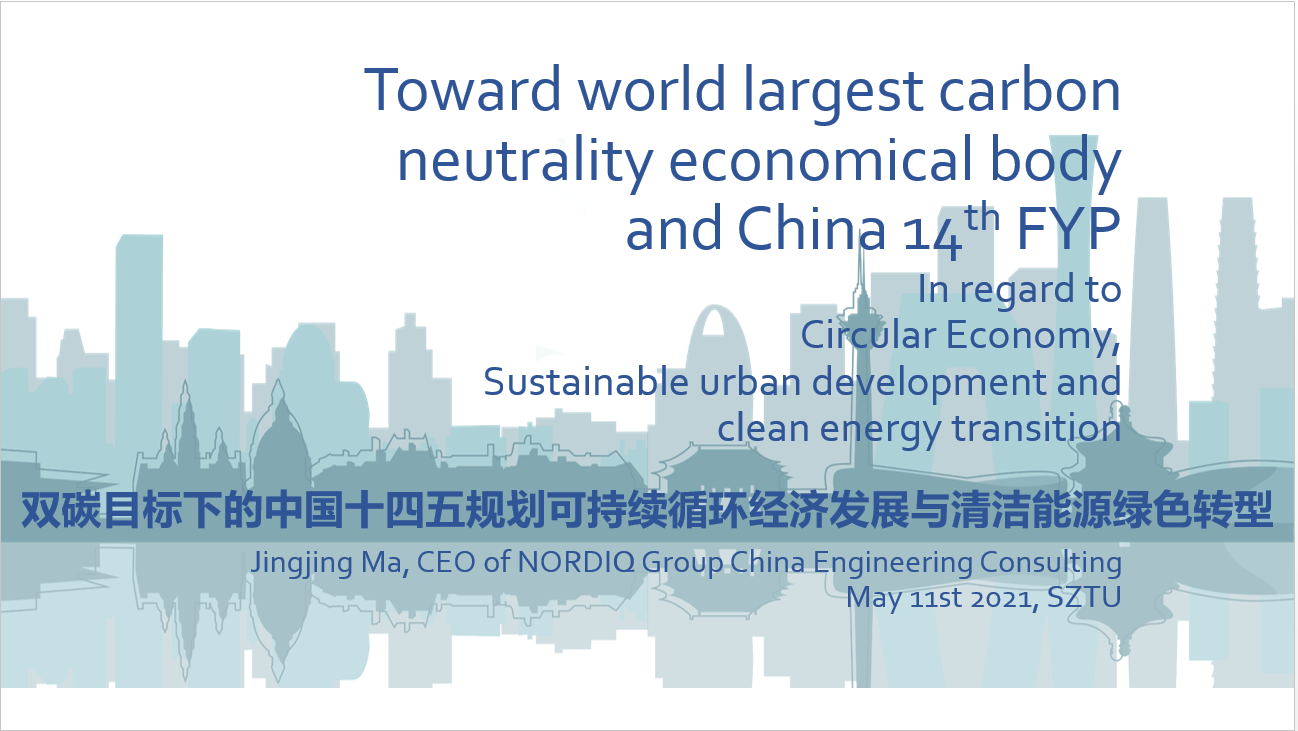

In September 2020, President Xi Jinping announced at the United Nations General Assembly that China will strive to have the country’s carbon dioxide emissions reach a “carbon peak” by 2030 and thereafter achieve “carbon neutrality” by 2060. The Central Economic Work Conference in 2021 also listed "achieving carbon peak and carbon neutrality" as one of its key tasks. The introduction and implementation of carbon peak and carbon neutral targets will be a long-term policy signaling China's low-carbon economic transition, which will bring a series of new challenges and opportunities to China's transportation, construction, energy, high tech and other industries, and may change the development pattern of all relevant industries and also give rise to many new investment opportunities.
The audience (company representatives, SZTU professors and students) was addressed by Professor Holger Haldenwang, Dean of the Shenzhen Technology University Business School, who talked about the importance of the transition to the circular economy and the benefits connected with it.
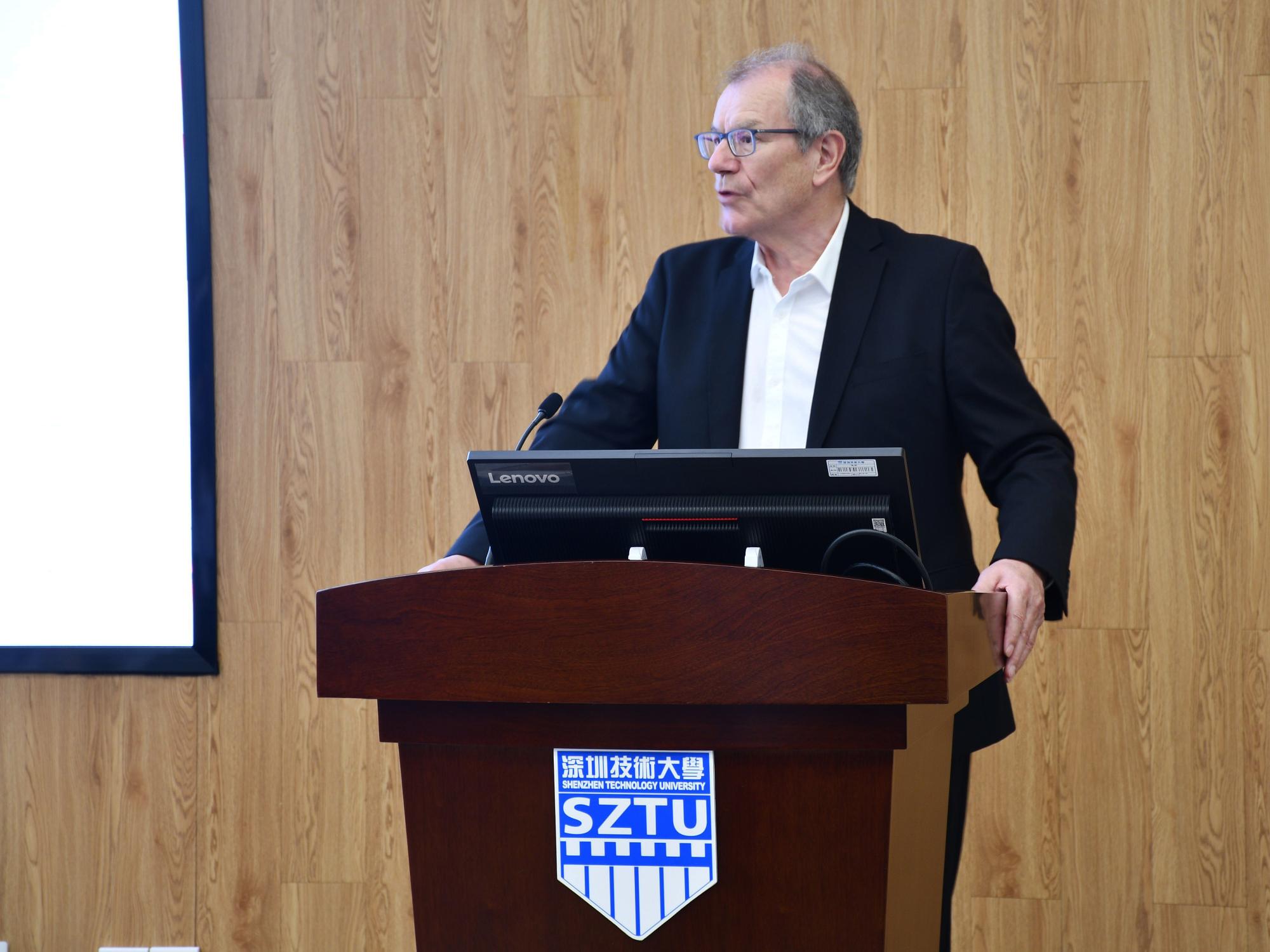
Professor Holger Haldenwang, Dean of the Shenzhen Technology University Business School
Professor Gordana Kierans, SZTU Business School Professor, Director of the Centre for Circular Economy and the host of the event, looked back at the journey that led to this first Expert Speech organized by the Centre for Circular Economy in cooperation with SZTU’s Enterprise Office. She stressed why it is important to understand the big picture first, before addressing single elements, as it is practiced in classic Systems Thinking. That was the rationale behind inviting Jingjing Ma as the speaker.
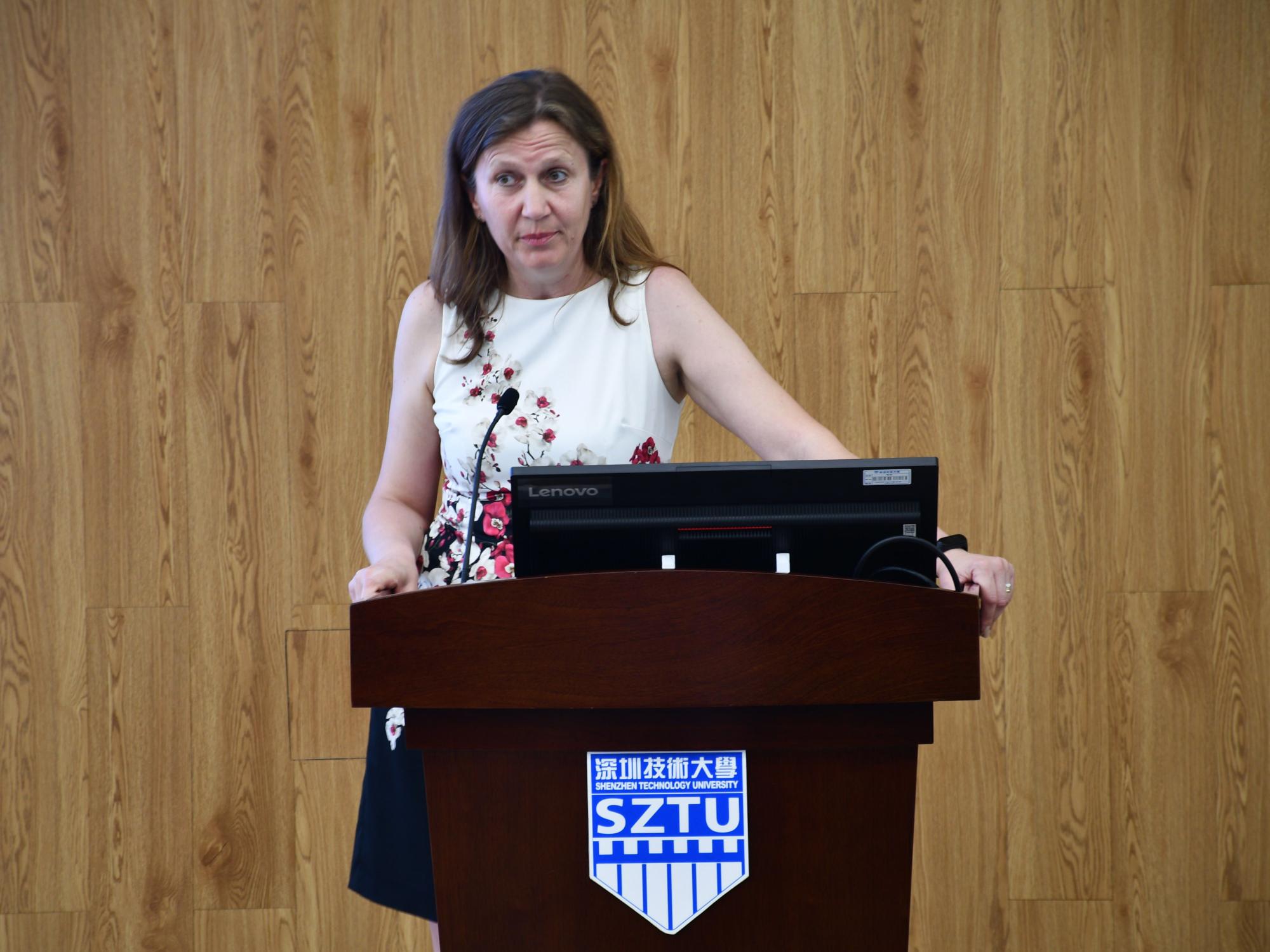
Professor Gordana Kierans, SZTU Business School Professor, Director of the Centre for Circular Economy
As co-founder of the NORDIQ Group in Denmark, Ma Jingjing has a strong understanding of the economic and political agendas in China, specifically as these relate to sustainability as she has on various occasions acted as trusted advisor for high-level politicians and officials. She has over 17 years of professional experience in climate change, low carbon city planning, sustainable urban planning framework development, slow traffic mobility system advice, ecological regional framework development and many completed environment projects.
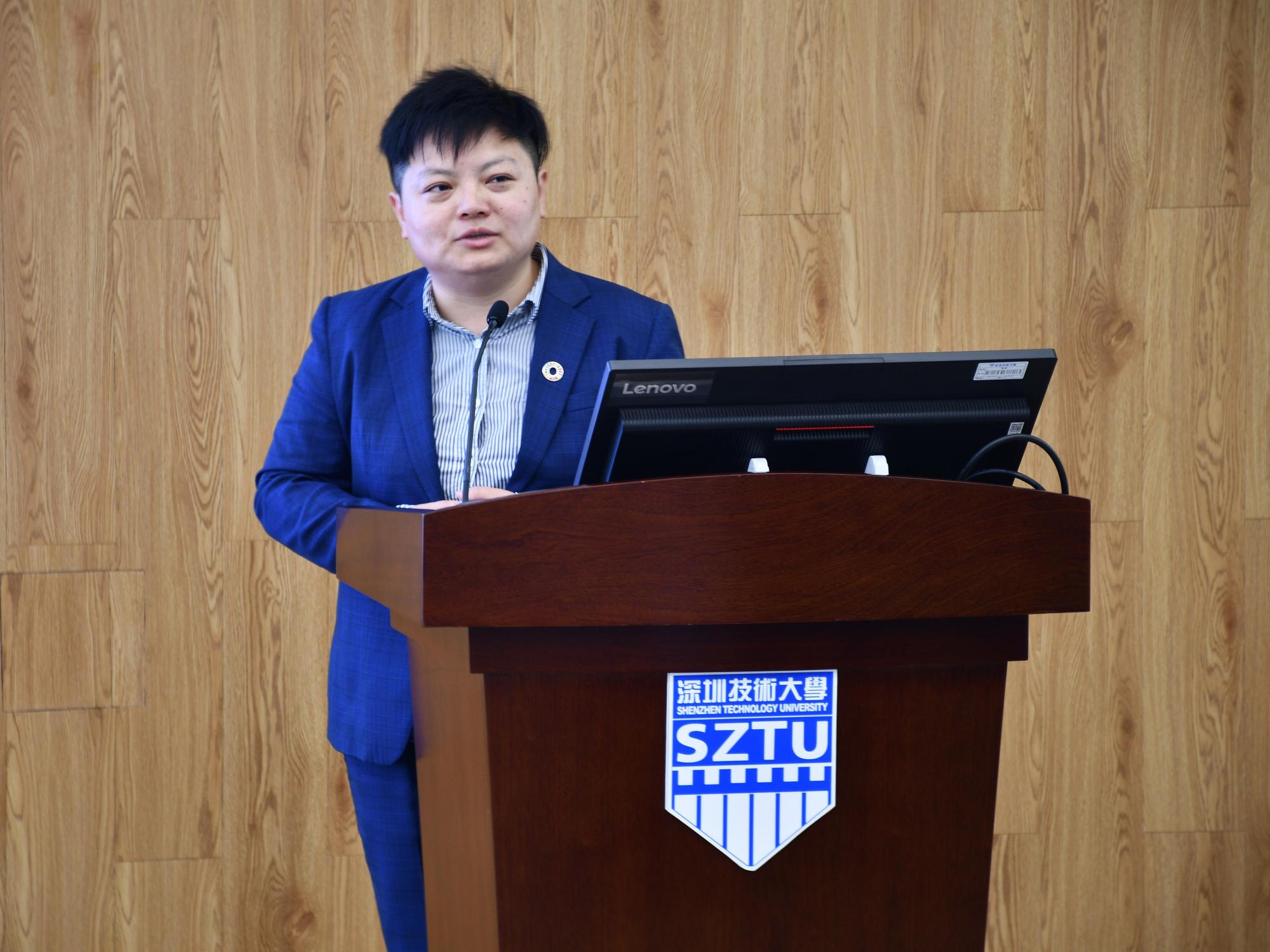
Keynote speaker: Ma Jingjing
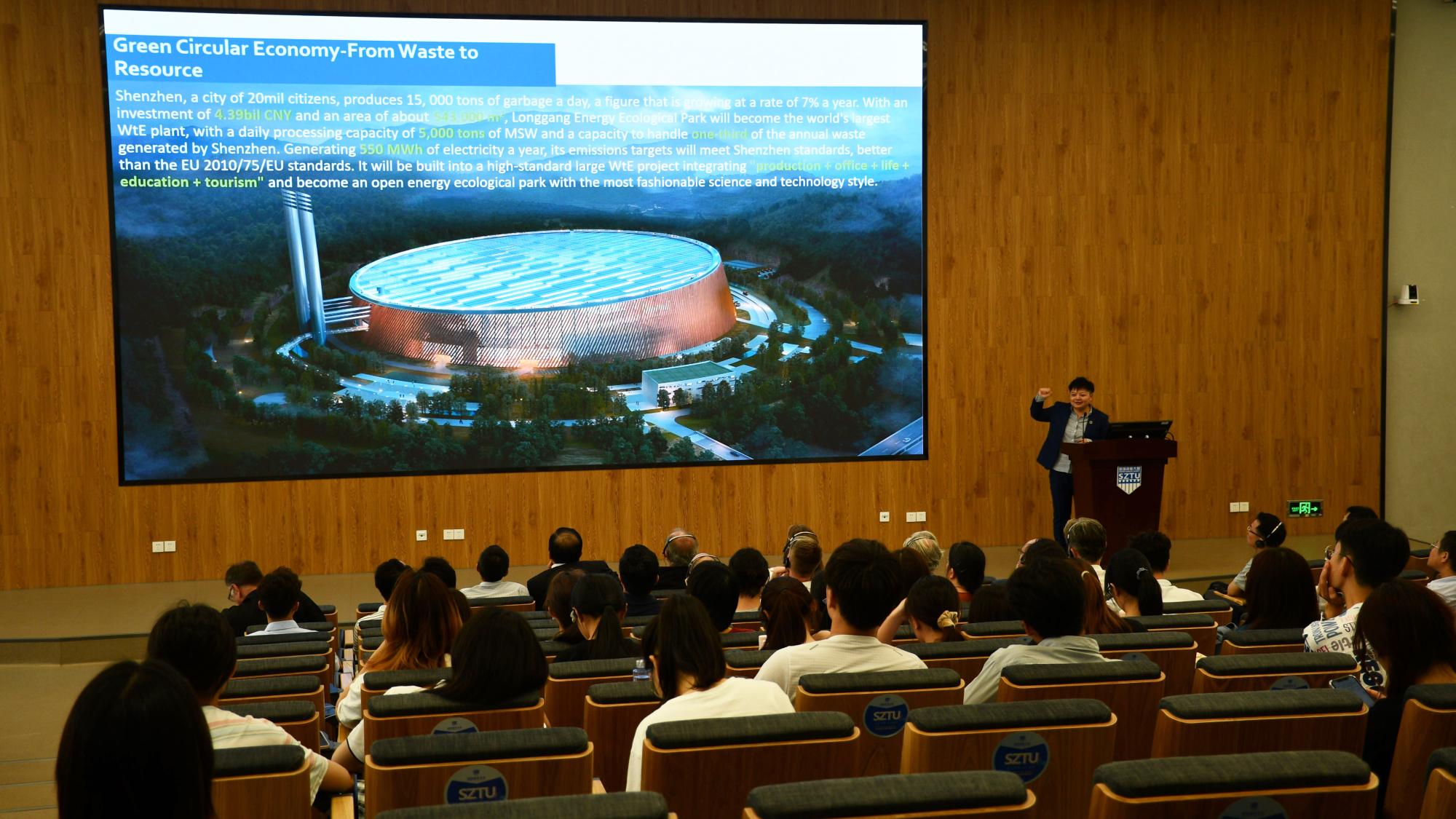
Ms. Ma focused her presentation on the emission of CO2 in the industrial sector, the transportation sector and the construction sector. In particular, the reusability of building materials must be taken into account more strongly in the future and the service life of buildings should also be included in the CO2 balance.
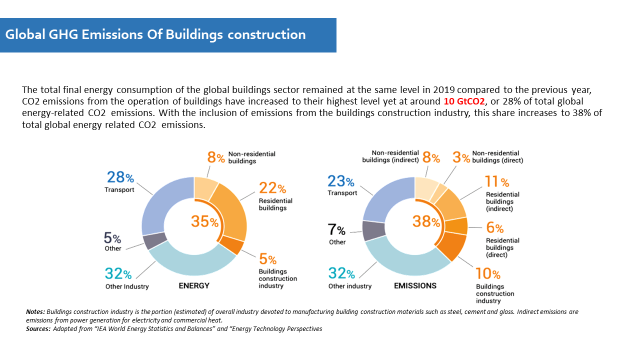
In the industrial sector, the decommissioning of coal-fired power plants and their replacement with alternative "green" energy sources such as wind, water and solar should be considered.
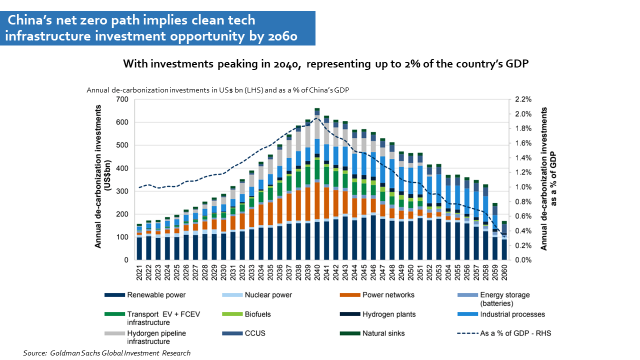

The creation of an emissions trading exchange, where companies can purchase CO2 certificates to achieve certain permitted levels of CO2 neutrality, will also contribute to this. At the same time, the storage of CO2 in the ground or/and in the oceans will also play a role in the future.
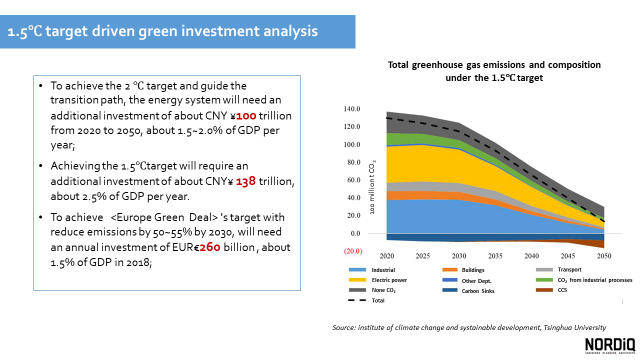
Ultimately, however, it is a matter of changing the behavior of the entire population in order to actually achieve CO2 neutrality without suffering significant losses in prosperity.
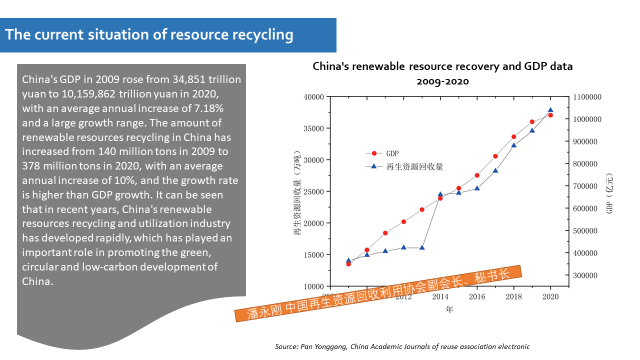
She even predicted falling energy prices in the future and, for example, significantly improved air conditions in Beijing, for example, due to the increased expansion of bicycle paths and the public transport sector.
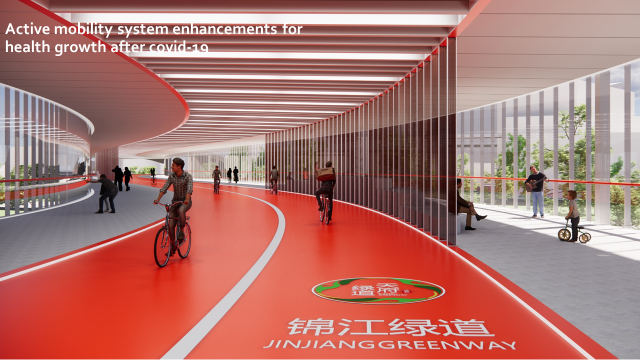
After an hour of covering varying topics from green transition towards carbon neutrality, energy transition, recent urbanization, and the circular economy, the audience had an opportunity to ask questions, which many participants took full advantage of. The discussion included challenges for SMEs, life-cycle extension, motivation for companies to change, technology applications and other topics.
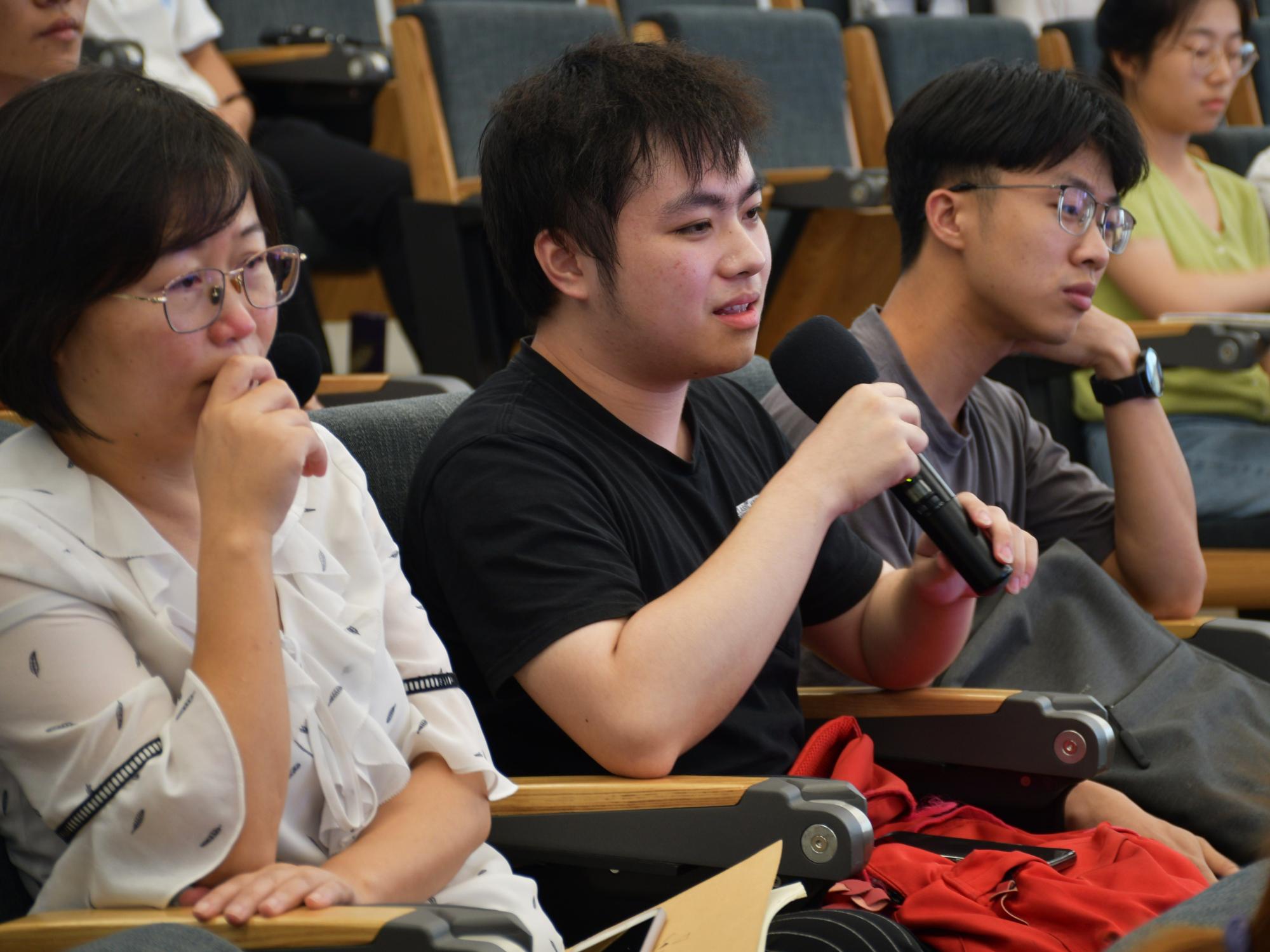
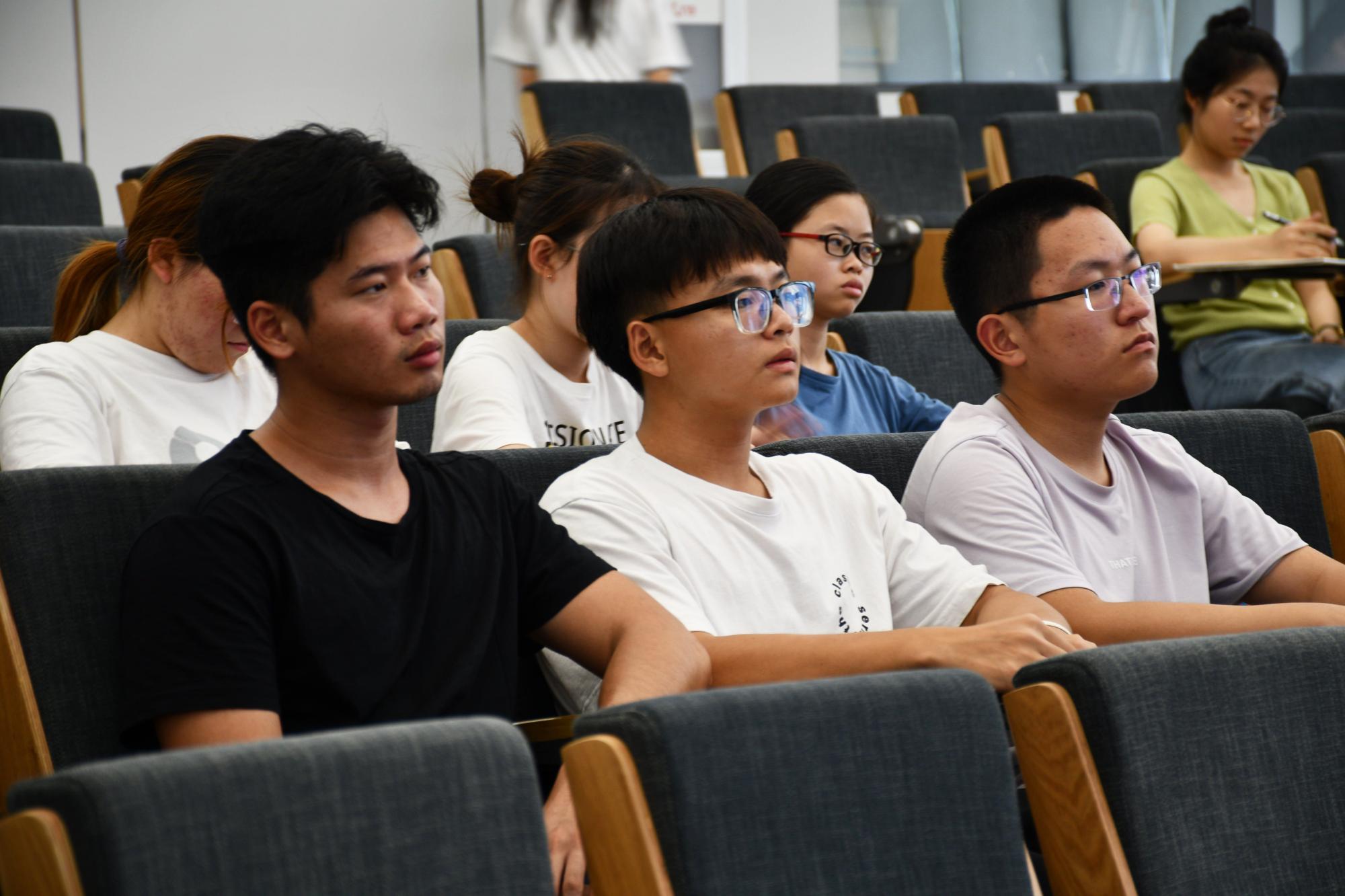
Students were interacting with keynote speaker Ma Jingjing
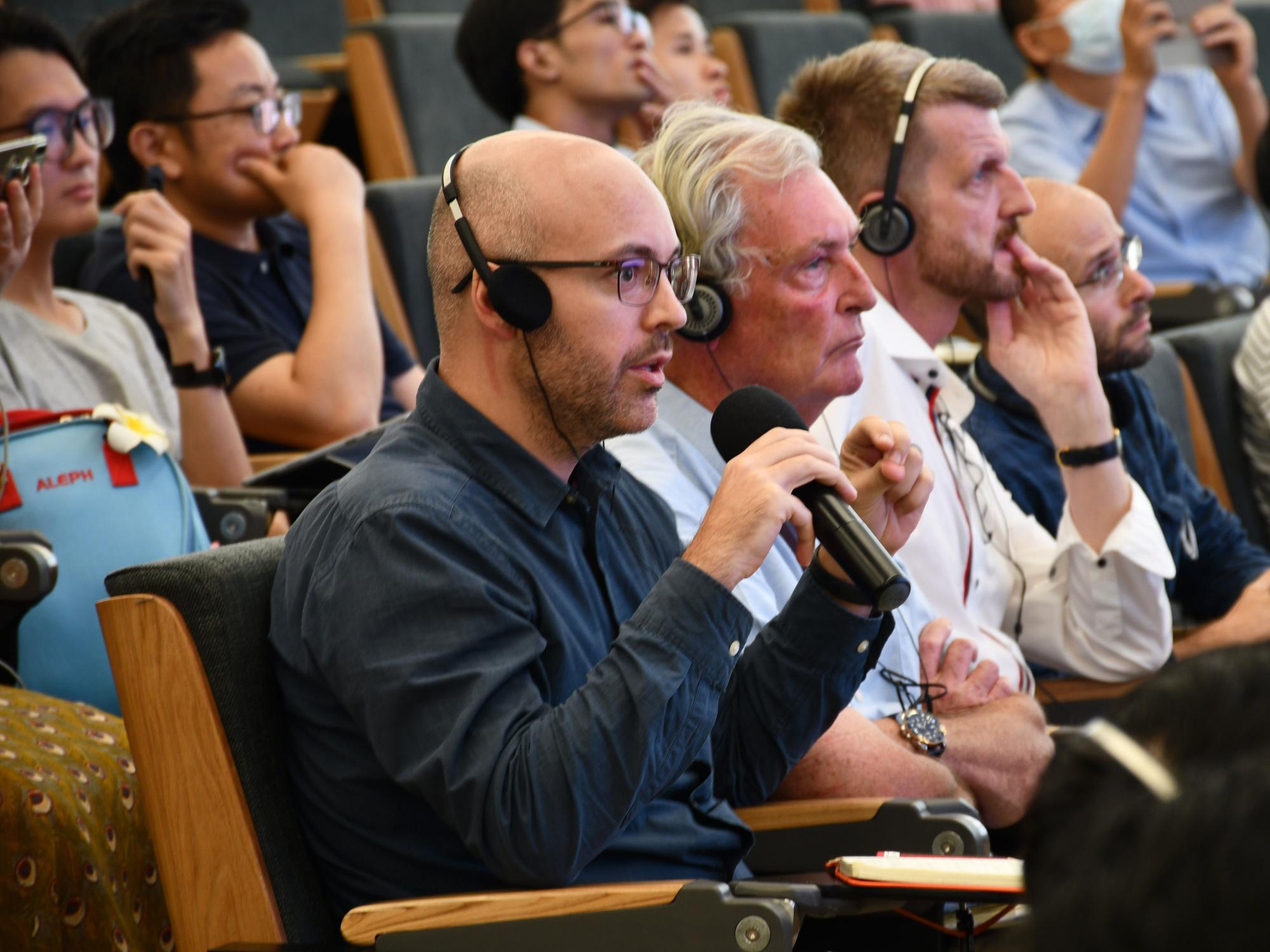
Assistant Manager of Techtronic Industries (Dongguan) Co.,Ltd. Maurizio Perino
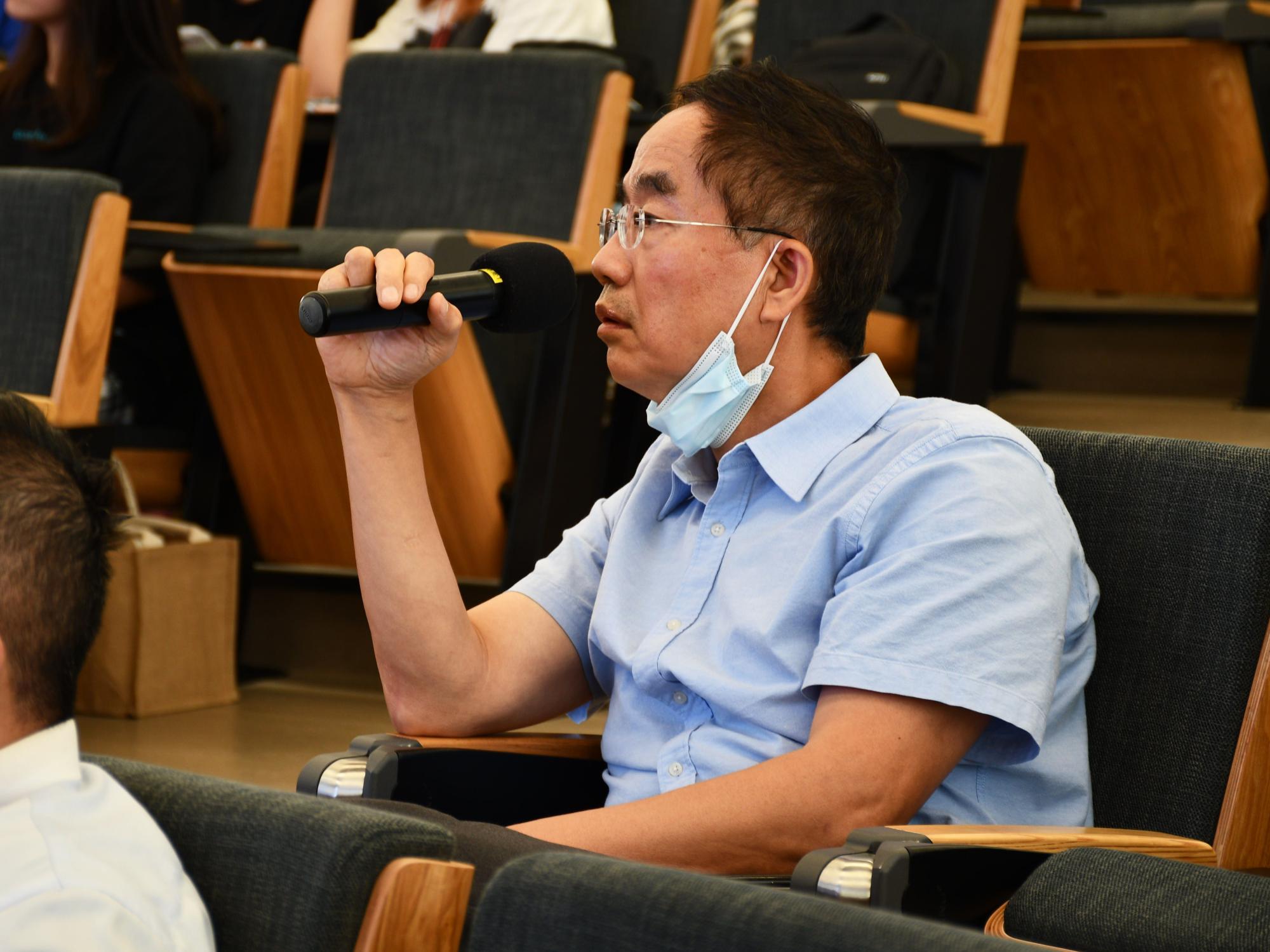
Dean of Julong College, Liu Qingxia
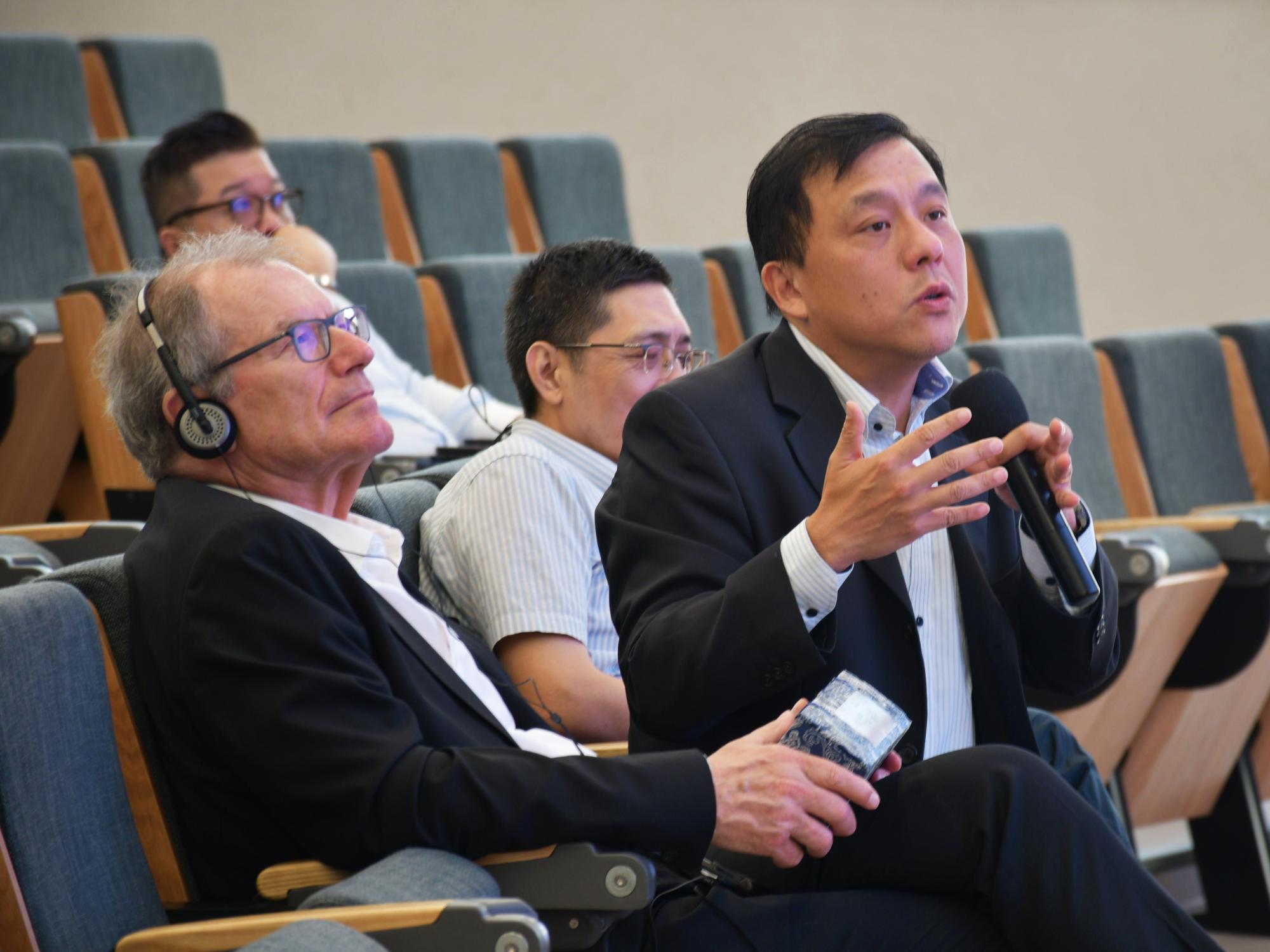
Director from Kashui Group, Chen Shanrong
Following the discussion, company representatives were invited to see the construction progress on the SZTU campus by walking on the recently completed “skywalk” to the Western Canteen, which they thoroughly enjoyed. During the dinner, the participants continued the conversation with the speaker and networked among each other. These company representatives were from Asia Environmental Innovation Forum, BYD, Huawei, Huadian Power International Corporation, Kashui Group, Kingdee, Milwaukee Tools, Yeefung and others.
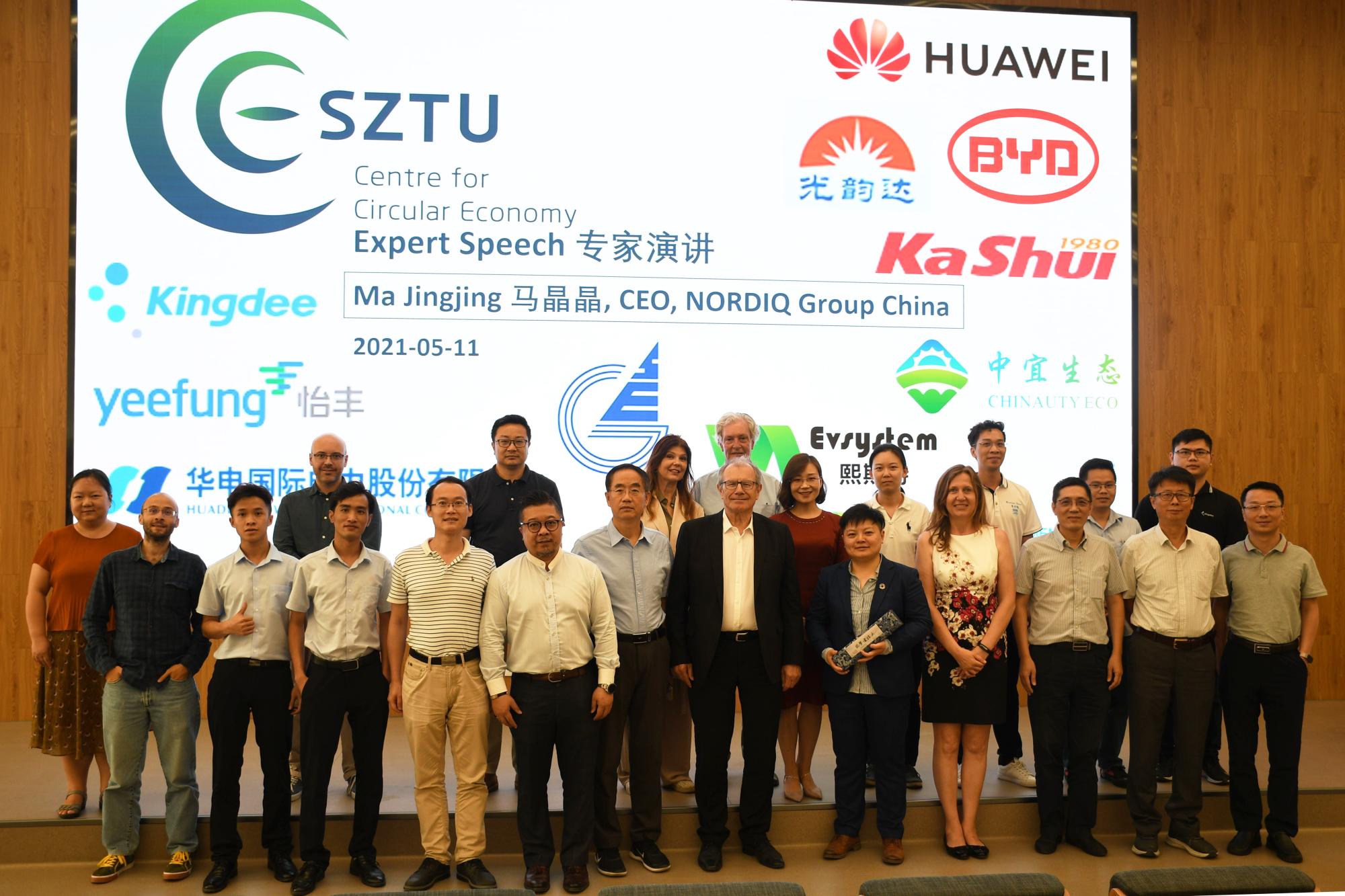
Text:Gordana Kierans
Translation:Liang Minyi
Pictures:Luo Chuni